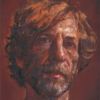19 Quantum Mechanics Books That Separate Experts from Amateurs
Recommended by Neil Gaiman, Walter Shaub, and Sean Carroll, these Quantum Mechanics books offer expert insights and proven knowledge.




Quantum mechanics, the science of nature at its smallest scales, remains one of the most fascinating and puzzling fields in physics. What if I told you that the principles governing particles and waves not only challenge our understanding of reality but also fuel transformative technologies like quantum computing? Now more than ever, grasping these concepts is vital for anyone curious about the future of science and technology.
Leading thinkers like Neil Gaiman, a celebrated author known for his storytelling mastery, and Walter Shaub, former Director of the Office of Government Ethics, have pointed readers to works that illuminate quantum mechanics with clarity and depth. Physicist Sean Carroll praises rigorous yet accessible texts that cut through mystery to reveal the underlying structures, helping both newcomers and seasoned learners engage with quantum theory.
While these expert-curated books provide proven frameworks, readers seeking content tailored to their specific background, goals, or subtopics might consider creating a personalized Quantum Mechanics book that builds on these insights, offering a customized learning path in just minutes.
by J. J. Sakurai, Jim Napolitano··You?
by J. J. Sakurai, Jim Napolitano··You?
What happens when a particle physics expert rethinks quantum mechanics? J. J. Sakurai, a distinguished theorist with appointments at UCLA and the University of Chicago, crafted this text to present quantum mechanics with clarity and rigor suited for graduate students. This edition, updated by Jim Napolitano, expands on the original by integrating 21st-century mathematical methods alongside foundational topics like Feynman path integrals and Bell's inequalities. You’ll gain a deep understanding of both the theoretical framework and experimental nuances, such as neutron interferometer experiments, making it particularly suited for those advancing in physics or related research fields. If your goal is to master quantum mechanics with a balance of tradition and modern insight, this book serves that pursuit.
Recommended by Neil Gaiman
Author and storyteller
“Rovelli is a genius and an amazing communicator… This is the place where science comes to life.”
by Carlo Rovelli, Erica Segre, Simon Carnell··You?
by Carlo Rovelli, Erica Segre, Simon Carnell··You?
Carlo Rovelli, a leading theoretical physicist with extensive work on space and time, explores the puzzling world of quantum mechanics through a fresh lens. Instead of presenting the usual particle-focused view, he invites you to rethink reality as made up of relationships rather than isolated substances, challenging traditional interpretations. You’ll encounter concepts like Heisenberg's breakthrough on Helgoland Island and paradoxes involving entangled particles and Schrödinger's cat, all explained in lucid, poetic language. This book suits anyone curious about the philosophical and scientific implications of quantum theory beyond formulas, especially those interested in how it reshapes our understanding of the universe and consciousness.
by TailoredRead AI·
This personalized book explores quantum mechanics by tailoring complex concepts to match your background and specific interests. It covers foundational principles, mathematical formulations, and the latest theoretical developments, creating a learning journey that aligns precisely with your goals. Through a custom synthesis of expert knowledge, it reveals the nuances of wave-particle duality, quantum states, and entanglement, ensuring you gain a deep understanding without wading through unrelated material. This tailored approach helps you navigate the challenging terrain of quantum theory with clarity and focus, maximizing your learning efficiency and engagement.
Recommended by The New York Times
“Kaku spends much of [Quantum Supremacy] recounting the history of computing, bringing listeners back to the Turing machine and the invention of transistors as crucial foundations. That mind-blowing future is the focus. . . . [Kaku's] lucid prose and thought process make abundant sense of this technological turning point.”
Michio Kaku's decades as a physicist and science communicator culminate in this book that unpacks quantum computing's transformative potential. You learn how quantum mechanics underpins a new computing paradigm capable of addressing challenges from energy to medicine, with chapters detailing applications like protein folding and nuclear fusion. This isn't just theory; Kaku connects the dots to industries racing to harness quantum power, making complex science accessible without oversimplifying. If you're curious about where technology meets physics and want insights on quantum's real-world impact, this book offers a clear-eyed exploration.
by Carlos J Pratt··You?
Carl J. Pratt's upbringing, influenced by an astronomer father, propelled him into the world of quantum mechanics, where he sought to demystify complex concepts for newcomers. This book breaks down foundational ideas like wave-particle duality, Heisenberg's uncertainty, and Schrödinger's equation with minimal math, making them approachable without oversimplifying. You’ll also explore advanced topics such as quantum field theory and quantum computing, gaining insight into both theoretical principles and their emerging applications. If you're intrigued by how the universe operates at its smallest scales and want a clear, accessible introduction to quantum physics, this book offers a thoughtful starting point.
by Travis Norsen··You?
Travis Norsen draws on his dual expertise in physics and philosophy to tackle a persistent confusion in quantum mechanics education: what the theory actually means physically. Instead of focusing solely on calculations, this book dives into the foundational questions that even top students struggle with, like the interpretation challenges that puzzled Einstein and Bell. You'll explore the key conceptual difficulties and promising realist frameworks that aim to clarify the theory’s physical coherence. With over a hundred thoughtfully designed projects, this text encourages active engagement, making it ideal if you want to deepen your understanding beyond formulas and grasp the physical implications of quantum theory.
This personalized book explores the foundational principles of quantum mechanics with a focus on rapid, actionable learning tailored to your background and goals. It covers essential concepts such as wave-particle duality, quantum states, and uncertainty principles, providing a clear pathway that matches your interests and skill level. By integrating core ideas and offering a tailored progression, it reveals how quantum phenomena govern the microscopic world and underpin emerging technologies. Through this tailored approach, the book breaks down complex topics into manageable steps that accelerate your understanding within a month, making the abstract accessible and immediately relevant to your learning journey.
Recommended by Walter Shaub
Former Director, Office of Government Ethics
“Hey @FreelanceAstro, I loved your book "What Is Real." I think the public would really benefit right about now from hearing a brief summary of what Heisenberg told civilized society in Great Britain about his work for the Germans, and what the spy guys knew he did.” (from X)
When Adam Becker, a science writer with a PhD in astrophysics, examined the contentious history of quantum mechanics, he uncovered a fascinating narrative beyond equations and experiments. This book delves into the philosophical debates and the fierce battles over the interpretation of quantum physics, spotlighting figures like John Bell and Hugh Everett who challenged the dominant Copenhagen interpretation. You’ll gain insight into the persistent quest to understand what quantum mechanics actually says about reality itself, exploring chapters on Bell's theorem and the Many Worlds interpretation. If you’re intrigued by the foundations of physics and the ongoing struggle to define what is "real" in quantum terms, this book offers a detailed and thoughtful perspective.
Recommended by Sean Carroll
Physicist at Caltech and SFI, podcast host
“This is quantum mechanics for real. This is the good stuff, the most mysterious aspects of how reality works, set out with crystalline clarity. If you want to know how physicists really think about the world, this book is the place to start.”
by Leonard Susskind, Art Friedman··You?
by Leonard Susskind, Art Friedman··You?
Physicist Leonard Susskind, a long-standing professor at Stanford, and data engineer Art Friedman bring you a rigorous yet accessible dive into quantum mechanics, building on their work from The Theoretical Minimum series. This book doesn’t shy away from quantum oddities like entanglement and uncertainty; instead, it embraces these head-on with clear explanations and mathematical frameworks. You'll explore quantum states, time dependence, and particle-wave duality, with exercises designed to solidify your understanding chapter by chapter. Ideal for those ready to move beyond popular science and engage directly with the theory and math underlying quantum phenomena.
by Steven Weinberg··You?
by Steven Weinberg··You?
Unlike most quantum mechanics books that focus narrowly on problem-solving, Steven Weinberg blends historical context with modern theory to deepen your understanding of quantum mechanics. You’ll explore classic Schrödinger solutions before advancing to a Hilbert space framework, gaining insight into topics like the Berry phase, entanglement, and quantum computing. The book also ventures into less common areas, such as alternatives to the Copenhagen interpretation and Dirac’s constrained canonical systems, enriching your perspective on fundamental physics. This text is ideal if you’re pursuing graduate-level mastery or need a rigorous reference that challenges conventional approaches.
Recommended by Robert Crease
Coauthor of The Quantum Moment
“This is the clearest and most insightful description of quantum enigmas that I have ever read. I kept being astonished at how Ball seemed to make one mystery after another vanish. He makes quantum mysteries disappear without removing their uncanniness. Brilliant and innovative, Beyond Weird may alter how quantum mechanics is taught not only to the public but also to physicists. I suspect that teachers of introductory quantum mechanics will be paraphrasing or outright quoting this book for decades.”
by Philip Ball··You?
Philip Ball, a seasoned science writer and former Nature editor, challenges your assumptions about quantum physics by unpacking its foundational strangeness. You’ll explore how quantum mechanics reshapes concepts like space, time, and causality, with chapters that dissect interpretations from uncertainty to information theory. This book suits anyone fascinated by the puzzling realities beneath everyday experience, especially those looking to grasp the true implications rather than just formulas. Ball’s narrative demystifies quantum puzzles without diluting their mystery, making complex ideas approachable through clear examples and recent experimental insights.
Recommended by Brian Cox
Professor of Particle Physics, University of Manchester
“A magnificent, compelling, and insightful voyage to the frontier of knowledge from a great writer with a deep understanding.”
by Jon Butterworth··You?
by Jon Butterworth··You?
Jon Butterworth's decades of experience at CERN and University College London led to this imaginative exploration of particle physics, framing complex quantum phenomena as an adventurous voyage through a miniature world. You learn to visualize the fundamental forces and particles—like electromagnetism as highways and the strong force as railways—making abstract concepts tangible. Specific chapters, such as the journey from Port Electron to the Isle of Quarks, help you grasp the structure of matter and the universe’s underlying forces. This book suits anyone curious about the subatomic realm, whether a science enthusiast or a student seeking a fresh perspective on quantum mechanics.
Recommended by Kunle Olukotun
Cadence Design Professor, Stanford University
“This book strikes just the right balance between theory and practice. Exploring quantum computing from the perspective of a classical programmer, using software and simulators to explain all concepts and algorithms, leads to an intuitive, accessible, yet deep learning experience. I highly recommend this book!”
by Robert Hundt··You?
by Robert Hundt··You?
While working as a Distinguished Engineer at Google, Robert Hundt noticed a gap in resources tailored to classical programmers venturing into quantum computing. His book meticulously breaks down over 25 foundational quantum algorithms, pairing rigorous mathematical proofs with practical Python and C++ code to simulate them. You gain a clear grasp of quantum teleportation, Shor’s algorithm, and compiler techniques, among others, along with insights into quantum noise and error correction. This book speaks directly to programmers eager to bridge classical and quantum worlds, though those without programming experience might find its depth challenging.
Recommended by Sean Carroll
Physicist at Caltech and SFI, Podcast Host
“A wonderful resource for anyone who wants to teach themselves quantum mechanics for real. You will learn the necessary math, but the real emphasis is on conceptual understanding -- Stone's book explains why things work a certain way, rather than just asserting that they do. It dispels the mystery from an intimidating subject.”
by James V Stone··You?
James V Stone's extensive academic experience in quantum mechanics and information theory led him to craft this uniquely balanced introduction that demystifies the subject through a combination of words, diagrams, and mathematics. You’ll gain a clear understanding of fundamental quantum principles like Bell's inequality and Heisenberg's uncertainty, supported by tutorial appendices and a glossary that make complex math approachable. This book suits anyone eager to grasp the mathematical underpinnings of quantum mechanics, especially undergraduates and interdisciplinary students. While it demands some mathematical engagement, the focus on conceptual clarity helps you see why quantum phenomena behave as they do rather than just memorizing formulas.
Recommended by Michael Wallace
Bestselling author in physics and philosophy
“Five Stars”
by Peter J. Lewis··You?
by Peter J. Lewis··You?
Peter J. Lewis, blending his physics background from Oxford with philosophy expertise from UC Irvine, tackles the tangled relationship between quantum mechanics and metaphysics. This book takes you through quantum theory’s core concepts, then explores how they upset traditional metaphysical ideas like causation, determinism, and individuality. You'll learn why the classical particle view no longer fits and how quantum interpretations demand fresh thinking about reality itself. It’s especially suited if you’re curious about the philosophical implications of quantum physics without drowning in math, offering clear discussions on topics usually reserved for specialists.
Recommended by Grant Hill
Chemistry professor and educator
“I will be recommending it to my students if they are looking for a refresher on some of the key concepts in quantum mechanics. Previous student evaluations of my courses have asked for something along these lines, so I’m happy to have found something suitable.”
by David O Hayward··You?
by David O Hayward··You?
David O Hayward's expertise as a chemistry professor shines through in this text tailored for undergraduates stepping into quantum mechanics. Instead of diving immediately into complex equations, he gradually introduces foundational concepts like de Broglie wavefunctions and particle-in-a-box models before tackling the Schrödinger equation and Hamiltonian operators in later chapters. This approach helps you build intuition about quantum behavior in molecules such as butadiene and benzene, linking chemical bonding knowledge with quantum principles. If you're a chemistry student seeking a gentle yet thorough introduction to quantum mechanics framed specifically for your discipline, this book suits your needs well.
by Jack D. Hidary··You?
by Jack D. Hidary··You?
Drawing from his role as a research scientist at Alphabet X, Jack D. Hidary developed this book to bridge the gap between theoretical quantum mechanics and practical application in computing. You’ll find a structured approach that begins with the basics of quantum circuits and moves through key algorithms, supported by real code examples and a companion GitHub repository. The inclusion of topics like quantum machine learning and error correction highlights current advancements, making it particularly useful for those looking to build hands-on skills and understand the mathematical tools underpinning quantum computing. This book suits both academic learners and professionals aiming to deepen their technical expertise in this evolving field.
by Thomas Vidick, Stephanie Wehner··You?
by Thomas Vidick, Stephanie Wehner··You?
What happens when a leading expert in quantum complexity meets the challenge of cryptographic security? Thomas Vidick, alongside Stephanie Wehner, brings you a clear and approachable guide that assumes no prior quantum computing knowledge. You’ll explore foundational theory and mathematical tools essential for understanding quantum cryptographic protocols, including quantum key distribution and quantum money. The book balances theory with hands-on learning, offering worked examples, exercises, and quizzes that build your intuition about cryptographic security’s quantum basis. It’s well-suited if you want a structured, stepwise introduction that connects quantum mechanics concepts directly to cryptography applications.
Recommended by Hassi Norlen
IBM Quantum Distinguished Ambassador, Qiskit Advocate
“This is the book I have wanted since I started dabbling in quantum computing. I like the authors’ approach of using Python to guide you through the initial stages of Quantum Concepts and Postulates of Quantum Mechanics. I have used this book as a reference during the Qiskit Global Summer School, which focused on Quantum Simulation. All in all a very pleasant experience, and got me out of my Qiskit comfort zone and into the expansions of Python.”
by Keeper L Sharkey, Alain Chancé··You?
by Keeper L Sharkey, Alain Chancé··You?
Keeper L. Sharkey and Alain Chancé bring together their expertise in quantum chemistry and computing to offer a unique introduction that blends theory and practice seamlessly. You dive into quantum chemistry concepts alongside the postulates of quantum mechanics, while simultaneously exploring how these ideas connect to quantum computing using Python and Qiskit code examples. The book guides you through computational tools and traditional methods, moving toward advanced topics like beyond Born-Oppenheimer calculations and quantum gate circuit design. If you’re interested in how quantum mechanics fuels breakthroughs in chemistry and computing, this book provides the foundational skills and hands-on experience to get you started effectively.
by Donald A. McQuarrie··You?
by Donald A. McQuarrie··You?
Drawing from decades as a distinguished chemistry professor, Donald A. McQuarrie crafted this updated edition of "Quantum Chemistry" to bridge traditional theory with modern computational methods. You’ll find detailed explanations of self-consistent field (SCF) calculations for simple systems like helium and hydrogen, alongside chapters demystifying Hartree-Fock and post-Hartree-Fock techniques. The book integrates practical exercises leveraging the National Institute of Science and Technology's extensive molecular data, making it a solid toolkit for mastering computational approaches. If you’re delving into molecular quantum mechanics and want a text that combines foundational theory with hands-on numerical examples, this is tailored for you. However, if you seek a purely conceptual overview without calculations, this may feel dense.
Recommended by Kirk Borne
Principal Data Scientist, Booz Allen
“Another great new book I just received from Packt Publishing >> "Quantum MachineLearning and Optimization in Finance" (391 pages): Big Data, Data Science, Neural Networks, AI, Quantum Computing, Computational Science” (from X)
by Antoine Jacquier, Oleksiy Kondratyev··You?
by Antoine Jacquier, Oleksiy Kondratyev··You?
This book challenges the typical approach to quantum computing by focusing specifically on financial applications where speed and optimization are critical. Antoine Jacquier and Oleksiy Kondratyev draw on their deep expertise in mathematics and quantum theory to guide you through building hybrid quantum-classical models tailored for Noisy Intermediate-Scale Quantum (NISQ) devices. You'll learn how to implement algorithms like quantum boosting and variational eigensolvers, with clear examples including credit approval models and high-frequency trading optimization. If you're involved in quantitative finance or data science and want to harness the emerging quantum advantage, this book offers a direct path without getting lost in abstract theory.
Get Your Personal Quantum Mechanics Guide Fast ✨
Skip generic advice and get targeted strategies designed for your goals and background.
Trusted by top quantum mechanics enthusiasts and experts
Conclusion
This collection of 19 books on quantum mechanics reveals a rich tapestry of perspectives—ranging from rigorous mathematical treatments and foundational philosophy to accessible introductions and applications in computing and chemistry. If you're grappling with conceptual challenges, starting with titles like Foundations of Quantum Mechanics or What Is Real? will deepen your understanding of the theory's meaning.
For those eager to apply quantum principles practically, books such as Quantum Computing for Programmers and Quantum Chemistry and Computing for the Curious offer bridges between theory and real-world implementation. Combining these resources can accelerate your mastery and open new pathways in research or technology.
Alternatively, you can create a personalized Quantum Mechanics book to bridge the gap between general principles and your specific situation. These books can help you accelerate your learning journey and confidently engage with one of science's most exciting frontiers.
Frequently Asked Questions
I'm overwhelmed by choice – which book should I start with?
Start with Quantum physics and mechanics for beginners by Carl J. Pratt for a clear, accessible introduction. It breaks down key ideas without heavy math, making it ideal if you’re new and want a solid foundation before diving deeper.
Are these books too advanced for someone new to Quantum Mechanics?
Not at all. Several titles, like Quantum physics and mechanics for beginners and Atom Land, are designed for newcomers. Others ramp up in complexity, so you can choose based on your background and goals.
What's the best order to read these books?
Begin with introductory works to grasp core concepts, then explore philosophical and theoretical texts like What Is Real? and Foundations of Quantum Mechanics. Finally, tackle specialized applications in computing or chemistry to see principles in action.
Should I start with the newest book or a classic?
Both have value. Classics like Modern Quantum Mechanics provide foundational rigor, while newer books such as Quantum Supremacy offer insights into cutting-edge developments. Your choice depends on whether you want historical depth or current applications first.
Do these books assume I already have experience in Quantum Mechanics?
Some do, especially advanced texts like Lectures on Quantum Mechanics. However, many books in this list cater to beginners or interdisciplinary readers, providing clear explanations that build knowledge progressively.
Can I get a personalized learning experience instead of reading multiple books?
Yes! While these books offer expert knowledge, creating a personalized Quantum Mechanics book can tailor content to your background, interests, and goals. This approach bridges expert insights with your unique learning needs. Check it out here.
📚 Love this book list?
Help fellow book lovers discover great books, share this curated list with others!
Related Articles You May Like
Explore more curated book recommendations


















